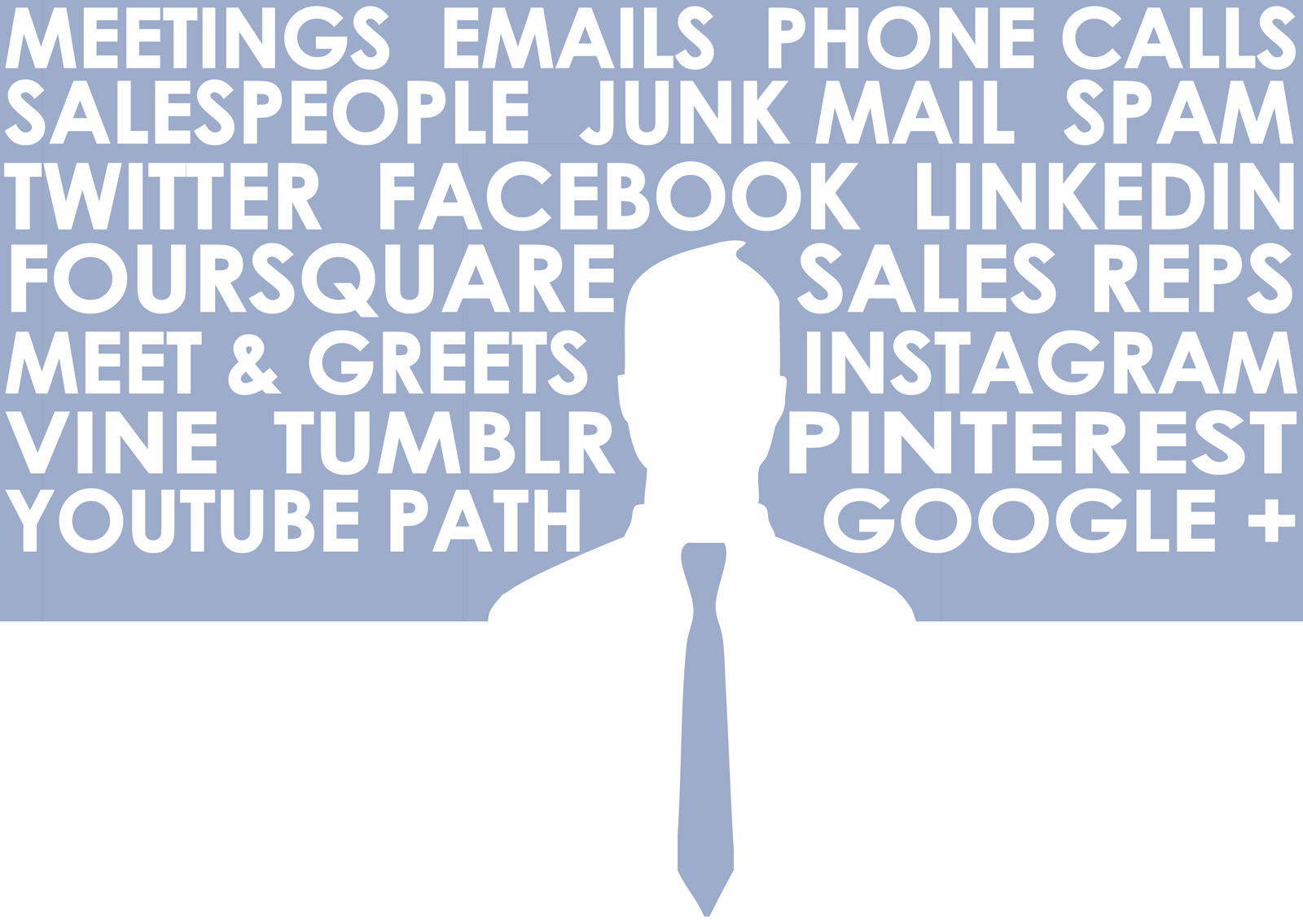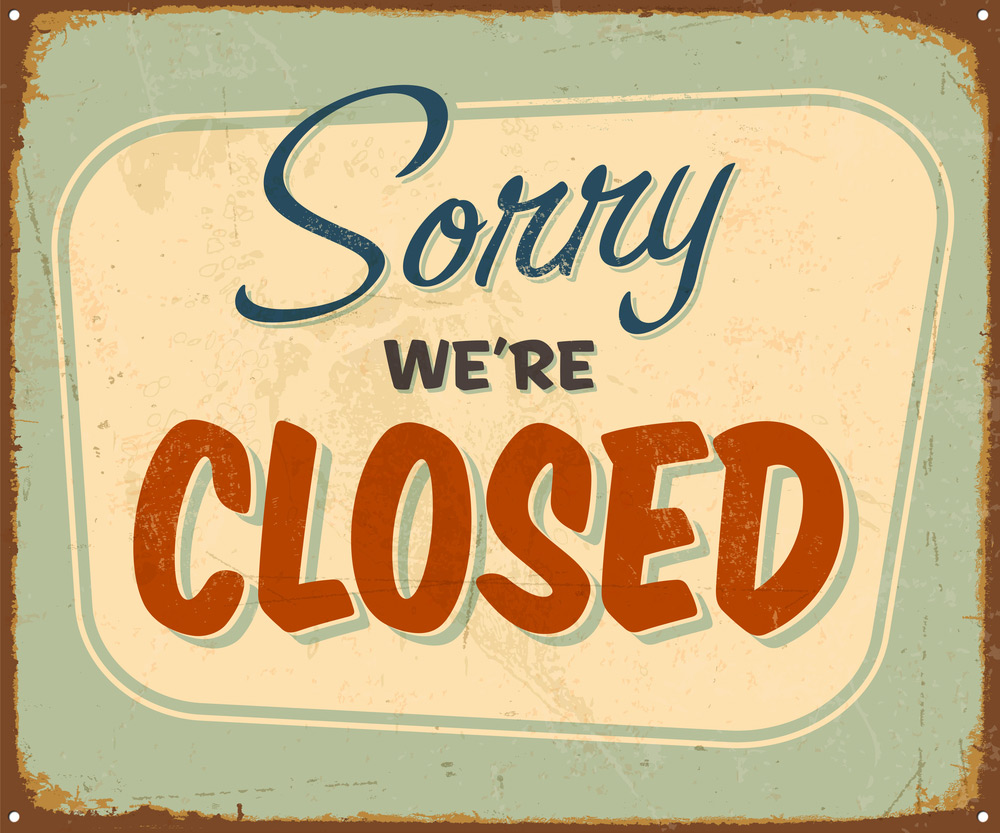
If you’re anything like us, you studied something passionately in college in order to aspire to do that thing masterfully in your professional life (in our case, it’s architecture). And if you’re anything like us, you’re well into your career and still enjoy doing that thing you do (still architecture). You’re also finding that in our current “information age,” there exists a seemingly infinite number of demands on your time that have little or nothing to do with what you actually enjoy doing: unproductive meetings (not architecture), useless emails (not architecture), sales calls (also not architecture), and all of the social media platforms that now have immediate access to your workday (definitely not architecture). To say nothing of junk mail, email spam, and office supply reps that come barging in through the front door unannounced, expecting to conduct on-the-spot service demos (none of these are architecture).
The distractions during one’s professional time are maddening and they each take a little chip away from your day, and more importantly, from your career. Regardless of what you do, these activities are not only counter-intuitive, they’re harmful. As the chips stack up, you find that what you’re actually getting good at is attending meetings, moving emails around, and playing social media butterfly — there’s no career left. But you’re like us (remember?), and you’re not going to give up your career without a fight. It’s time to stand your ground and we’re here to help. Here’s our 10 step guide to guarding your time and taking back your career:
1. Turn your meetings into phone calls.
We recently read a great post by our buddy Bob Borson who plainly states: Meetings are a Waste of Time. Most of the time we tend to agree, here are a few exceptions for us at BUILD:
- Client meetings where discussions forward the client’s objectives and design decisions are made.
- Site visits where construction decisions are made.
- Monday meetings with the office/shop to strategize the week and delegate tasks.
- Friday afternoon meetings (accompanied by cocktails) to wrap-up the week and send everyone off “complete” to enjoy their weekends.
Other than that, we find most meetings to be a huge time-suck. It takes time to get across town, there are too many opportunities to get off task, and the more people involved in the meeting, the more moving parts there are to coordinate. In fact, most of the time we find that everything we aim to accomplish with a meeting can easily and quickly be accomplished with a phone call. The concept isn’t ours, but we use it all the time. (Thanks, Tim Ferriss.) In addition to restoring more career time, it also saves a lot of gasoline.

2. Turn your phone calls into emails.
It’s easy for people to start rambling on over the phone, but it’s a bit more laborious if they have to type it out. Along the lines of Point #1, getting the job done can usually be accomplished in a fraction of the time with a more effective medium. This tactic is something we had been striving to do more of, and, it became all the more cemented once we clearly identified the benefits and saw time- (and career-) saving results. (Again, thanks, Tim.)
3. Significantly limit the amount of emails you read/respond to during the workday.
It’s shocking how many emails come through over the course of a day that have nothing to do with your career. An invitation to that swanky party, that Louis C.K. clip about flying, (which is friggin’ hilarious by the way,) or that ongoing string of emails attempting to pin down a date for your baby group dinner. Most of it is great. Most of it is necessary for a well-rounded 21st century life. And most of it can wait. Create a folder for social/personal emails and deal with those items later. Answer them after dinner, after the kids go to bed, after you’ve done what you do. You’ll enjoy corresponding with your friends more at the end of a productive day with a drink in your hand anyway. And if you still don’t want to deal with those emails even in your personal time, maybe they should just be deleted.
Pro tip: A FAQ email folder is priceless. We don’t cut/paste scripts impersonally, but it sure is nice to start with templates for prospective clients, repetitive processes, and even how to establish parent expectations before each soccer season.

4. Turn away anyone who walks through the door unannounced.
More often than not, they’re expecting to meet face-to-face, without having made an appointment or giving any heads-up. And if they didn’t get on your schedule in the first place, there’s a very good chance that you don’t want anything to do with the nature of their visit. Give them a business card and tell them to send an email (that’s why you have business cards). Yes, you’ll feel like an ass, but once you send the signal out into the universe that anyone who walks through your door gets to automatically meet with you, you’re career time is over.
5. Turn social media off during career time.
We’re no luddites, in fact we’ve enjoyed and done quite well participating in the social media realm, but Twitter, Facebook, and even “professional” platforms like LinkedIn can devastate your career time. The entire business model behind these platforms is to bug you all day. The last time our Facebook account alerted us of “A Notification Pending,” the urgent message awaiting our attention was that our buddy in Brooklyn enjoys prosciutto on his pizza. Brilliant. Thanks, Facebook. Unless you’re networking with a deliberate result, turn it off.

6. Automate your social media.
Don’t get us wrong, we love Twitter and Facebook — they are powerful tools to get specific jobs done. However, when left on all day for chitter-chatter and banter they are enormous time-sucks that take our careers out to the back alley and beat the bloody hell out of them. Spend a finite and deliberate amount of time each day to stack up the messages you want the rest of the world to know about and move on (and preferably something more significant than pizza toppings).
7. Create dedicated social time.
If you’re good at your career, there will inevitably be people who want to hear about your work or simply introduce themselves. At BUILD, it’s often students or young architects eager to learn about our design-build practice. Which is great — we’re always honored to be a subject of interest. But if we accepted every meet and greet, our day would look like Swiss cheese. Instead we set aside social time at events like ARCADE’s launch parties to catch up with old friends and meet new ones. Allocating specific time for social interaction is also a great test of someone’s character; if someone is happy to take up an hour of your career time, but is unable to prioritize meeting you during your social time, it’s a very easy way to take them off your list.

[Photo Credit: Toryan Dixon for ARCADE]
8. Each morning, write down your five key objectives for the day.
It seems silly at the beginning of the day (of course you’re going to get all five of those important things checked off the list), but as the day progresses, as the emails stack up, and as the social media notifications begin to find you, it’s surprising how threatened those five tasks become. Writing them down gives you a baseline, and it differentiates your career actions from the distractions.
9. Set typical hours and stick to them.
This is a tough one for anyone in a creative design field. Creatives are trained from day one to spend as much time in the design studio as it takes to produce works of uncompromised genius. The problem with this is it devalues the hours during the day because your schedule can simply push into the evening, into the night, and the next thing you know, the sun is coming up. Setting your hours each day places a higher value on the workday — it’s easier to ignore the distractions and focus on career actions. And, let’s face it, at some point near-genius may be all that’s attainable and working further will simply dilute from what is already the best possible result. Not to mention all the good that will occur in your life (professional and personal) with the proper balance.

10. Keep lists.
Whether digital, handwritten or other, lists are perhaps most valuable because they indicate what’s a priority, what’s not, and they carve out room in your brain for the actual career work to happen. Our office keeps a master list on our chalkboard with project target dates, and most of us have an ever-evolving to-do list breaking down tasks into the granular. The state of one’s to-do list is a good indicator of the production level during a day.
It’s these 10 guidelines that foster and protect our careers, while keeping the distractions at bay. We’re always open to new tools, so hit that comments button (on your lunch hour, of course), and share any techniques that have helped you take back your career.
Cheers from Team BUILD





